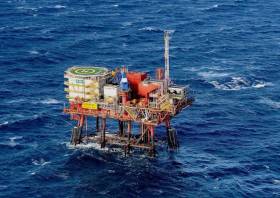Displaying items by tag: Fossil Fuels
Government Agrees Terms For Oil Exploration Ban
Seán Canney, Minister of State for Community Development, Natural Resources and Digital Development, has confirmed the policy principles that will underpin the Taoiseach and Minister Bruton’s announcement to cease new exploration for oil offshore Ireland.
This announcement, in an address to the United Nations Climate Action Summit on 23 September, came on foot of advice received from the Climate Change Advisory Council on what the future of oil and natural gas offshore exploration should be in the context of the recently published Climate Action Plan.
The council noted that the plan envisages a major shift away from oil combustion within heat and transport sectors towards renewables in the coming decade. Therefore, the council advised that the exploration for, and recovery of new offshore oil reserves, is not compatible with a low carbon transition.
The council further advised that the continued exploration for and extraction of new offshore natural gas reserves can be consistent with a low-carbon transition.
Gas is considered to be a transition fuel. This is particularly the case for Ireland, the Government says, where we do not have nuclear power, hydro power at scale or geo-thermal power, which other countries can use to provide back-up for wind and solar power.
The Government asserts that natural gas, as the lowest emitting fossil fuel, will provide the best electricity back up in 2030 when Ireland reaches 70% renewable electricity.
The minister will commission an Energy Sustainability and Security Review which will consider the role of fossil fuels during the transition. It will also consider the role that other technologies can play.
Minister Canney confirmed yesterday (Wednesday 30 October) the following principles in relation to petroleum exploration in the Irish Offshore:
- All future licencing rounds in the currently closed area offshore (Atlantic Margin, 80%) will be for natural gas only and not oil.
- All new licence applications in the currently open area (Celtic Sea, Irish Sea, coastal areas, 20%) will be for natural gas only and not oil, applicable from the day of the Taoiseach and Minister Bruton’s announcement on 23 September.
- All applications and authorisations in place before the announcement was made will not be affected by the decision.
The minister has asked the department to prepare a policy statement which will set out:
- The basis for the underpinning principles in the broader context of the Government’s Climate Action Plan;
- The future development management framework for the exploration and production of gas, as a transition fuel, in Ireland’s offshore; and,
- The role of natural gas in ensuring Ireland’s energy security.
“These principles underpin the Government’s decision for no new oil exploration offshore Ireland. They provide further clarity on the implementation of this decision and are consistent with the Climate Action Plan published by Government on 17 June 2019,” Minister Canney said.
“The Climate Action Plan puts Ireland on a trajectory to meet our 2030 target for carbon emissions, which is consistent with achieving net zero carbon emissions by 2050.”
Minister Bruton added: “Over the next decade, we will rapidly reduce our reliance on fossil fuels as we move to 70% renewables.
“The Government sought advice from the Climate Advisory Council on exploration in the context of this transition and has accepted that advice to ban new oil exploration off Irish coastal waters. Today we agreed the terms of that ban.”





























































